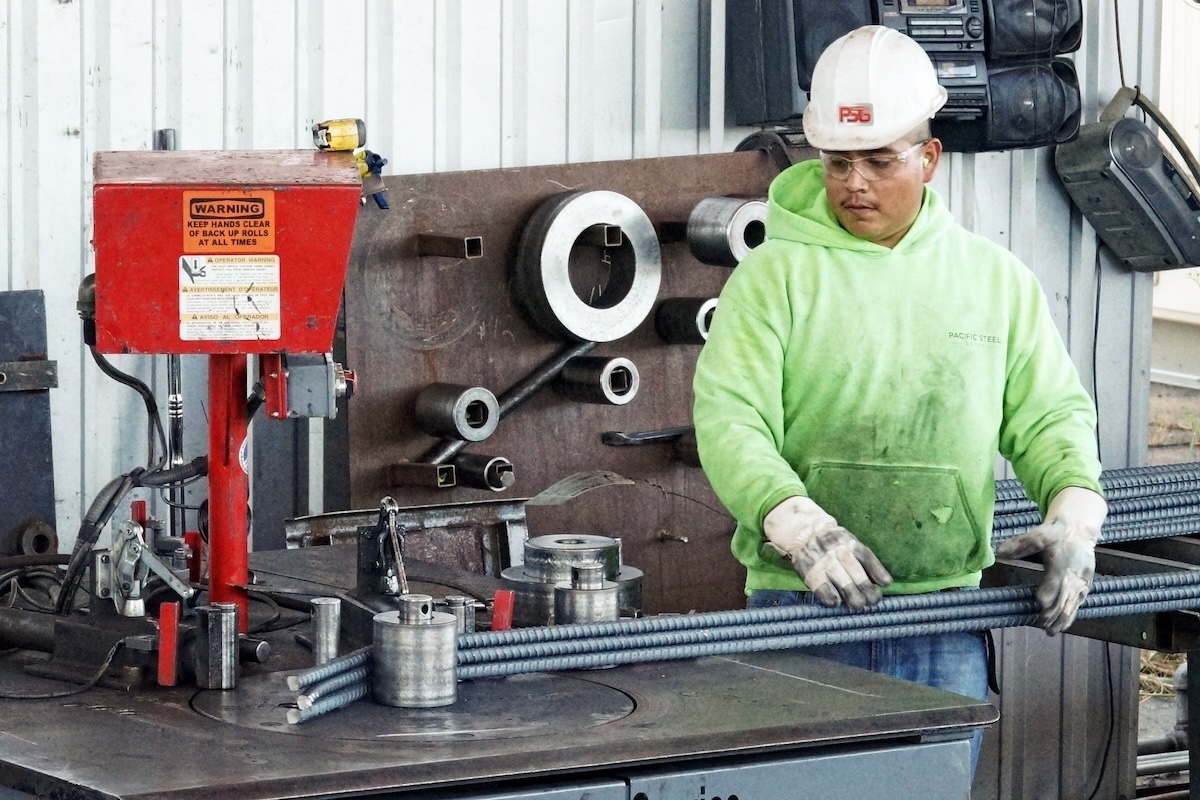Greetings Agents of Impact!
🇧🇷 Agents of Impact Call No. 68: Unlocking impact and climate alpha in Brazil. Brazilian families are “motivated by the impact,” says Wright Capital’s Fernanda Camargo, who manages the wealth of over 40 Brazilian families. She has created three in-house funds-of-funds, each roughly $30 to $40 million, to cut the transaction costs of investing in smaller funds, and is standing up another to focus on nature-based solutions, regenerative agriculture and climate tech. “We have an infinite amount of opportunities in the bioeconomy,” Camargo told ImpactAlpha. Camargo will join Fama Re.Capital’s Fabio Alperowitch, Pretahub’s Adriana Barbosa, Giselle Vianna of the Sustainable Social Economic Development Council and other Agents of Impact to explore opportunities in Brazil for impact and climate alpha, Wednesday, Jan. 29 at 10am PT / 1pm ET / 3pm São Paulo. RSVP today.
In today’s Brief:
- New opportunities for Opportunity Zones
- Seaweed farming in Indonesia
- Renewable energy in Southeast Asia
- Building the ecosystem for climate + gender investing
Featured: Policy Corner
Investors look for Opportunity Zones to get an extension and a fresh dose of tax-advantaged capital. The shape of Republicans’ new tax bill is not yet known, but that’s not slowing Arctaris Impact Investors. The Boston-based fund manager is looking to close its fourth Opportunity Zones fund at $200 million this year on the assumption that President Donald Trump will work with Congress to extend the Opportunity Zones community economic development program – and its capital gains tax breaks – or make them permanent before the provisions sunset in 2025. Though not without critics, Opportunity Zones represent a rare chance for bipartisan cooperation. The program, originally part of Trump’s 2017 tax cuts, has mobilized as much as $84 billion from private equity investors looking for capital gains tax relief in exchange for investments in nearly 9,000 designated low-income census tracts. With Trump back in the White House, the program looks likely to be extended, and perhaps even improved for better transparency and impact. “We remain really optimistic that it’s going to get extended,” Arctaris’ Patrick Mullen tells ImpactAlpha, “and that firms like ours will be really well-positioned to help shepherd that into the next generation.”
- Mixed reputation. Back in 2019, Trump touted the tax breaks as “the hottest thing going,” as a number of his wealthy associates took advantage of the program to put capital to work in projects of sometimes dubious impact. Ahead of a potential revision, some research suggests that giving wealthy investors tax breaks on capital gains for investing in low-income, underinvested neighborhoods could end up costing taxpayers more than the impact it is generating. But an analysis last year by Economic Innovation Group, which helped design the original legislation, found that Opportunity Zones tax incentives had helped drive significant increases in the supply of housing. The zones represent about 10% of the US population but account for 20% of all new market-rate multifamily apartment units under development, up from 8% prior to the program. “Critically, this revaluing of distressed areas came with no observed increase in rents,” the EIG report found.
- Place-based strategies. Arctaris has raised $350 million across four private equity Opportunity Zone funds since 2018 and launched programs in eight cities in Maryland, Pennsylvania, Colorado, Maine, Rhode Island and Ohio to invest in affordable and workforce housing, broadband infrastructure and operating businesses. In Erie, Pa., Arctaris launched a $40 million program in 2020, backed with $5 million in first-loss capital from the Erie Community Foundation, to invest in downtown revitalization. “We’re the first capital investor to be building new workforce housing in 50 years,” says Arctaris’ Andrew Gibbs. Opportunity Alabama says it has helped drive more than $300 million in real estate development in designated Opportunity Zones (for background see, “From Alabama to Utah, rural Opportunity Zones attract private investors for local development”).
- Opportunity Zones 2.0. Advocates see opportunities for improvement in an updated Opportunity Zones bill. Updated census zones, for example, could take into account new economic hubs that have sprung up around battery and chip plants, as well as downtowns with empty office buildings that could be adapted for new uses, argues Bruce Katz of the Nowak Metro Finance Lab at Drexel University. Arctaris has been advocating for greater data transparency and impact reporting on OZ investors, an objective of bipartisan legislation introduced last year. “Communities have to be allowed to control where and what kind of investments are made, particularly around this question of housing,” says Steve Glickman, who earlier led the Economic Innovation Group and now sits on Arctaris’ board of advisors.
- Keep reading, “Investors look for Opportunity Zones to get an extension and a fresh dose of tax-advantaged capital,” by Roodgally Senatus on ImpactAlpha.
Dealflow: Impact in Southeast Asia
Banyu nabs $1.3 million to boost Indonesian seaweed farmings. Indonesia is one of the largest producers of seaweed, a key source of nutrition that also absorbs carbon and nitrogen from water. Dominated by smallholder farmers, the country’s seaweed industry provides income for more than 260,000 coastal households. “Many farmers struggle to rise above the poverty line due to systemic challenges,” such as price volatility, lack of market access, limited financing options and poor quality inputs, said Banyu’s Anis Nur Aini. The Jakarta-based startup trains seaweed farmers on managing seedlings and harvesting techniques to boost their yields. It provides better quality and more resilient seedlings, helps farmers improve income predictability, and links farmers to international and local buyers. Banyu oversees farming and production methods to ensure farmers meet environmental and food- and pharma-grade standards to help secure offtake agreements.
- Seaweed R&D. Banyu secured $1.3 million in a seed round led by Indonesian VC firm Intudo Ventures, part of which will support a seedling nursery and cultivation lab. “A crucial aspect of our approach involves collaborating with universities and research institutions to explore downstream applications of seaweed,” said Aini. “By conducting cutting-edge research into the development of value-added seaweed products, such as bioplastics, food additives and cosmetics, we aim to elevate the global perception of Indonesian seaweed.”
- Dive in.
SUSI Partners lands $139 million for energy transition infrastructure in Southeast Asia. Demand for power is growing in many countries in Southeast Asia that are heavily dependent on coal for electricity. Southeast Asia is set to account for 25% of the growth in global energy demand between now and 2035. Switzerland’s SUSI Partners secured a fresh $139 million to build clean energy capacity in the region. British International Development and FMO, the UK and Dutch development financial institutions, topped up their investments in SUSI’s Southeast Asia-focused renewable energy funds. They also committed a combined $120 million for co-investment in a subset of the fund’s utility-scale renewable assets.
- Greenfield funding. The fresh capital brings SUSI’s total funding for its Southeast Asia strategy to $259 million. SUSI initially closed the Asia fund in 2023 at $120 million, but reopened it due to investor demand. SUSI’s fund has backed commercial and industrial solar projects in Vietnam, waste-heat recovery and cogeneration plants in Malaysia, and utility-scale solar in Singapore. The co-investment vehicle with BII and FMO will support the construction and early operation of new renewable assets “to provide clean energy to countries in Southeast Asia that have a clear need for additional power while diversifying their energy matrix,” said FMO’s Peter Byrde.
Dealflow overflow. Investment news crossing our desks:
- Citi provided a $10 million loan to Paraguay’s Banco Familiar to on-lend to small businesses in the country. (Citi)
- Bees & Bears raised €500 million to help German households finance the installment of solar panels, heat pumps, energy storage systems and wall boxes to improve home energy efficiency. (Tech.eu)
- The Livelihood Impact Fund invested in Tanzania’s MazaoHub Agclimate to provide farming data and precision agriculture advisory services to smallholder farmers. (MazaoHub)
- Pluralize Capital invested in Boulder, Colo.-based Mad Capital, which provides flexible debt financing to transition family-owned farms from conventional to organic agriculture. (Pluralize Capital)
- Italy’s Algebris Investments raised €60 million for its first fund to invest in climate tech startups in Europe. The “deep green” SFDR Article 9 fund was backed by CDP Venture Capital and several Italian pension funds. (ESG News)
Impact Voices: Climate + Gender
Fund managers go beyond dealmaking to build the field of climate and gender investing. Political backlash against diversity initiatives and climate action is underscoring the importance of field-building, especially for combined climate and gender strategies that are only beginning to gain traction among investors. “Investors who step into their role as system-builders can magnify their impact, unlocking solutions that drive equity, resilience and sustainability on a global scale,” say Natalie Shriber and Sana Kapadia of Heading for Change, the donor-advised fund launched by Suzanne Biegel in 2023 to demonstrate the many ways gender fits into climate investment strategies. A number of Heading for Change’s dozen fund managers are now leaning into ecosystem building. “These funds are doing more than deploying capital,” Shriber and Kapadia write in a guest post on ImpactAlpha. “They’re shaping environments where their investments can succeed and building the market for sustained change in the longer term.”
- Systemic change. “Progress is a shared responsibility,” the authors write. EcoEnterprises Fund in Latin America invites its investors to portfolio visits and knowledge-sharing calls. Catalyst Fund, an Africa-focused climate tech investor, publishes a monthly deal tracker to help break down barriers excluding underrepresented founders. To curb plastic waste, Circulate Capital brings corporations to the table by structuring its investments to align with their long-term sustainability goals.
- Tools for progress. “Solutions and funding options require multi-dimensional and intersectional approaches,” write Shriber and Kapadia. That includes technical assistance, catalytic capital and other field building tools to expand the pool of investable opportunities. They suggest investors engage in “collective stewardship” and reflect on systemic inequities, biases, challenges and gaps. “By embedding themselves in the systems they seek to change,” they write, “investors can drive outcomes that are not only measurable but deeply meaningful, paving the way for a more equitable and sustainable world.”
- Keep reading, “Fund managers go beyond dealmaking to build the field of climate and gender investing,” by Natalie Shriber and Sana Kapadia of Heading for Change on ImpactAlpha.
Agents of Impact: Follow the Talent
Summa Equity’s Andrew Marino is named board chair at Calvert Impact, succeeding Bart Harvey… Regina Ross, previously with Khan Academy, joins Opportunity Finance Network as executive vice president and chief people and culture officer. Damon Smith, formerly with the US Department of Housing and Urban Development, joins OFN as executive vice president and general counsel… PJ Jannuzzi, previously with Blackstone, joins Vision Ridge Partners as managing director and head of asset management.
Scott Kennedy, a co-founder and CFO at Novata, is shifting to an advisory role at the sustainability data company… BNY Mellon seeks a senior director and head of climate and sustainability integration in New York… Institutional Limited Partners Association is recruiting a director of sustainable investing in London… MCE Social Capital is hiring a business development and communications analyst in New York or Washington, DC, and a paralegal in DC… Nathan Cummings Foundation is accepting proposals for grants and program-related investments that advance racial, economic and environmental justice.
👉 View (or post) impact investing jobs on ImpactAlpha’s Career Hub.
Thank you for your impact!
– Jan. 23, 2025












